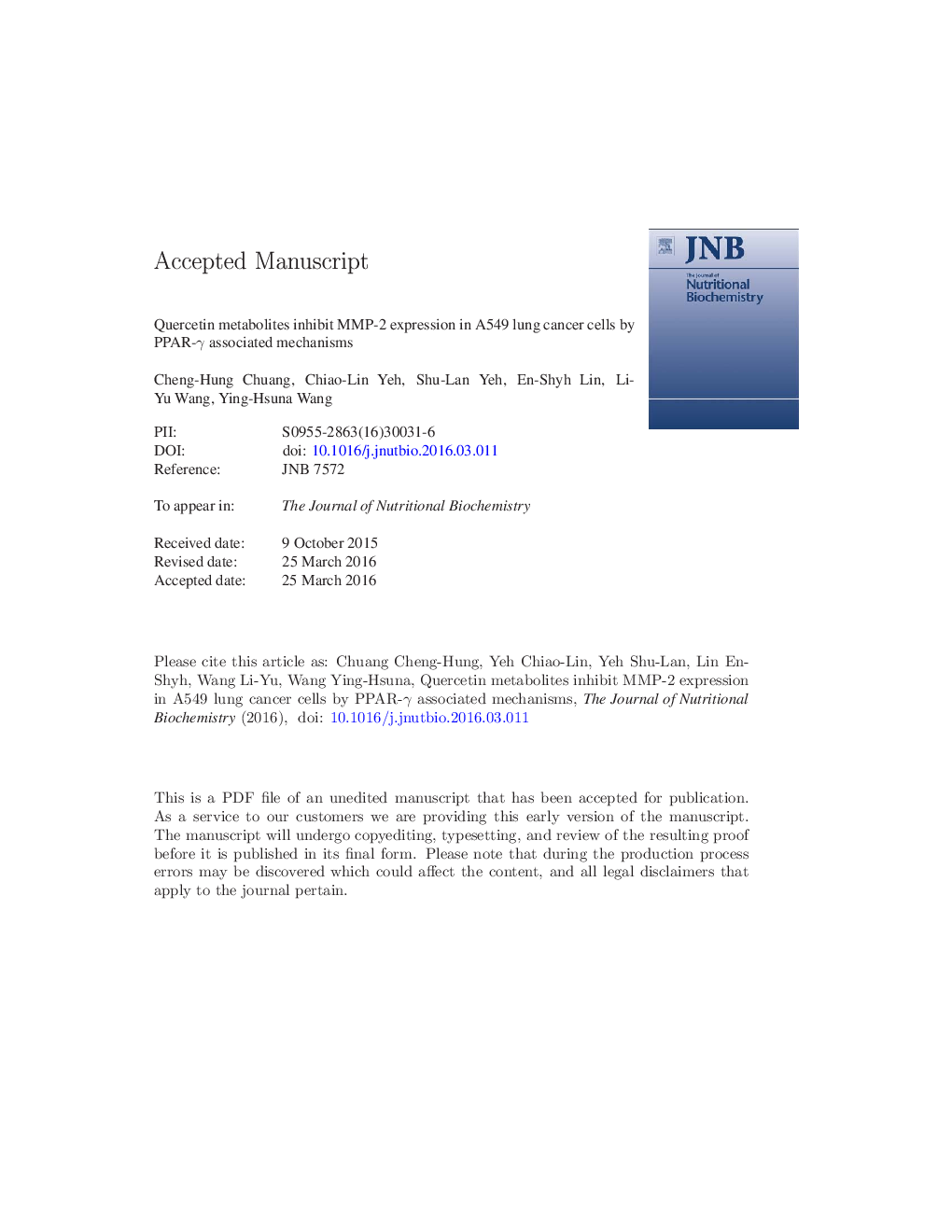| Article ID | Journal | Published Year | Pages | File Type |
|---|---|---|---|---|
| 8336556 | The Journal of Nutritional Biochemistry | 2016 | 31 Pages |
Abstract
Our previous study demonstrated that quercetin-metabolite-enriched plasma (QP) but not quercetin itself upregulates peroxisome proliferator-activated receptor gamma (PPAR-γ) expression to induce G2/M arrest in A549 cells. In the present study, we incubated A549 cells with QP as well as quercetin-3-glucuronide (Q3G) and quercetin-3â²-sulfate (Q3â²S), two major metabolites of quercetin, to investigate the effects of quercetin metabolites on cell invasion and migration, the possible mechanisms and the role of PPAR-γ. We also compared the effects of QP with those of quercetin and troglitazone (TGZ), a PPAR-γ ligand. The results showed that QP significantly suppressed cell invasion and migration, as well as matrix metalloproteinases (MMPs)-2 activity and expression in a dose-dependent manner. The effects of 10% QP on those parameters were similar to those of 10 μM quercetin and 20 μM TGZ. However, QP and TGZ rather than quercetin itself increased the expressions of nm23-H1 and tissue inhibitor of metalloproteinase (TIMP-2). Furthermore, we demonstrated that Q3G and Q3â²S also inhibited the protein expression of MMP-2. GW9662, a PPAR-γ antagonist, significantly diminished such an effect of Q3G and Q3â²S. Silencing PPAR-γ expression in A549 cells also significantly diminished the suppression effect of Q3G and Q3â²S on MMP-2 expression. Taken together, our study demonstrated that QP inhibited cell invasion and migration through nm23-H1/TIMP-2/MMP-2 associated mechanisms. The upregulation of PPAR-γ by quercetin metabolites such as Q3G and Q3â²S could play an important role in the effects of QP.
Keywords
Related Topics
Life Sciences
Biochemistry, Genetics and Molecular Biology
Biochemistry
Authors
Cheng-Hung Chuang, Chiao-Lin Yeh, Shu-Lan Yeh, En-Shyh Lin, Li-Yu Wang, Ying-Hsuna Wang,
